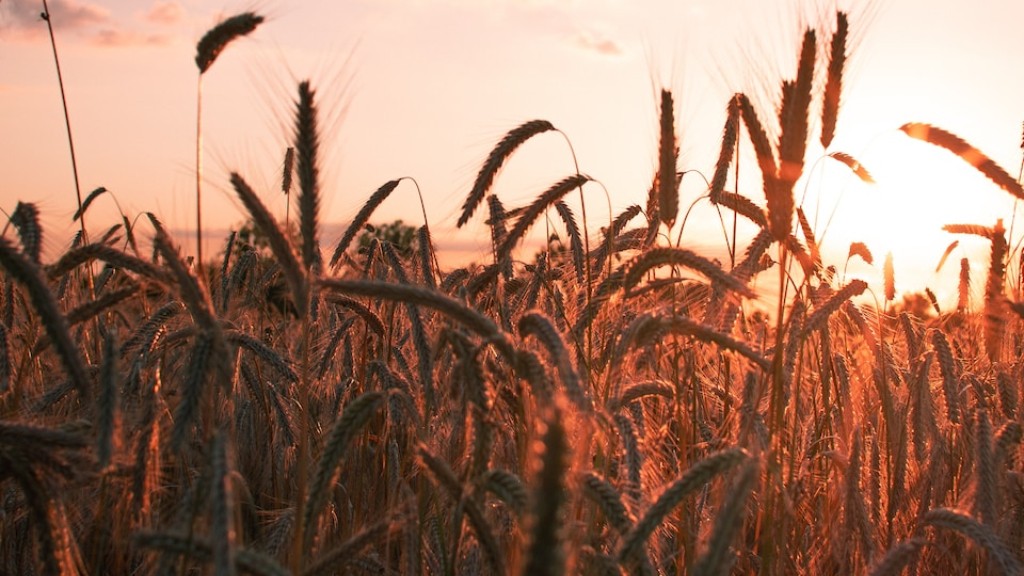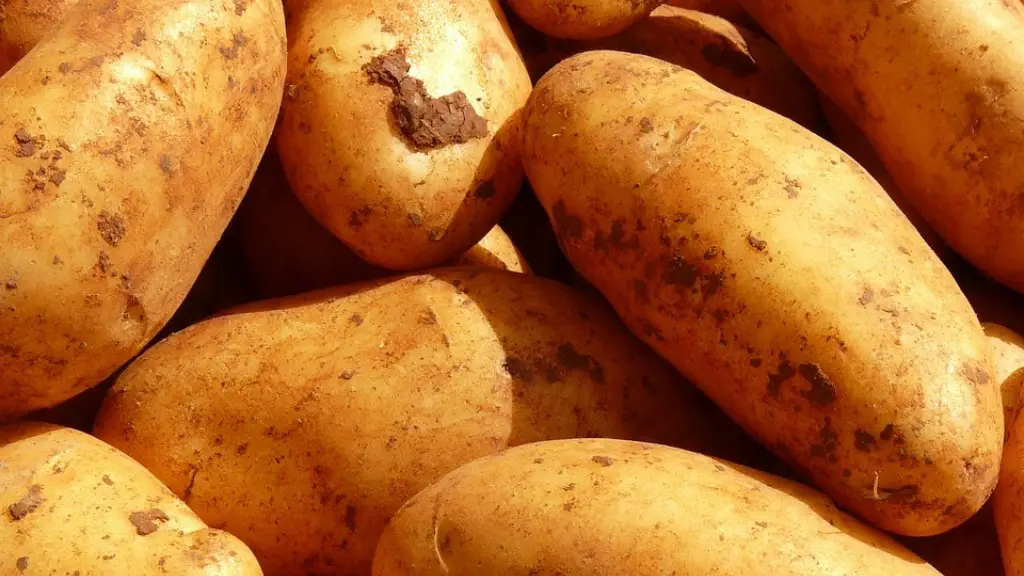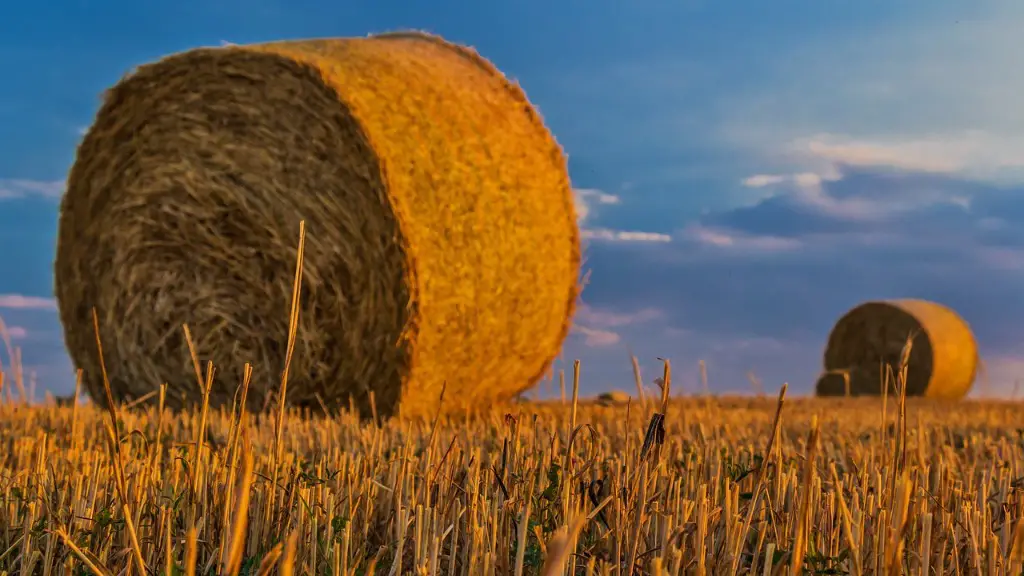Wyoming’s agriculture is comprised of over 10,000 farms and ranches that span across the state. Based on the 2017 census of agriculture, released by the USDA’s National Agricultural Statistics Service, Wyoming’s agriculture is home to an array of products raised on its farms and ranches. It produces the largest amount of wool in the US, second in cattle and calf inventory and is in the top 5 in hay production. Within its crops, Wyoming produces wheat, barley, oats, hay, sugar beets, potatoes and sweet corn. In terms of livestock, Wyoming is a leader in sheep and lambs, beef cows, and calves, with 100% of the state’s farms raising some kind of animal. It’s also the second-largest producer of honey and colostrum, the first milk produced by cattle.
Wyoming’s agricultural sector is the state’s second-largest market, with over 70,000 jobs and a sizable economic output of about $13 billion. According to the Wyoming Business Council, a number of people are employed in either the direct production of commodities, processing, storage and distribution, or in activities related to supporting the industry. Many of the major agricultural operations in Wyoming are family owned and operated, which is an important part of the state’s economy.
Wyoming’s agricultural industry is growing, as the state is receiving more attention from farmers and ranchers from across the US and internationally. Attracted by Wyoming’s unique environment and climate, agriculturalists have been able to begin operations in Wyoming to raise numerous crops and animals for food and fiber. Due to the variety of products Wyoming’s agriculture produces, many of them are exported to other countries, bringing in an economic benefit to the state.
Wyoming provides a number of resources for agricultural operations and their employees, including agricultural lending services, educational opportunities, professional networks and assistance programs. It also offers a variety of incentives and assistance programs to help agricultural operations get started or expand existing operations. The state is also actively searching for new markets, while also promoting existing markets to help maintain and develop its agricultural industry.
Wyoming’s agricultural sector plays an important role in the state’s economy and overall well-being. It provides a significant portion of the state’s incomes and exports, provides ag-related jobs, and produces food and fiber for the state and in some cases, beyond. Wyoming’s agricultural sector looks to be well on its way to a bright future, as it continues to develop and grow.
Challenges of Wyoming’s Agriculture
Wyoming’s agricultural sector still faces significant challenges, from the global threat of climate change to the localized issues of land scarcity and resources. Climate change is redefining the local environment, slowly and steadily eroding the traditional practices and landscapes that form the basis of Wyoming’s agricultural industry. In many areas, this is leading to both water and land scarcity, which are critical resources for the state’s agricultural activities. With the constant variable of climate change, the state needs to find new ways to protect its agricultural operations, land, and environment.
Another challenge of Wyoming’s agriculture is the changing economic calculations of farming and ranching. The economics of farming and ranching has shifted dramatically in the recent years, with rising costs outpacing the return on production. This has prompted many throughout the state to explore alternative farming techniques and crops, as well as alternative markets to ensure a viable income from farming.
In addition, the state’s high elevation can cause persisting snow, ice, and frost for extended periods during the year. This relentless cold can damage crops and harm the productivity of livestock. For a state where a significant portion of the population relies directly and indirectly on agriculture, these conditions only further exacerbate the challenges posed by the changing environment.
While ongoing advances in technology have helped farmers and ranchers on their journey towards a more productive and efficient use of their land, the stark reality remains that resources are finite. Nevertheless, producers strive to be as efficient as possible with their resources and labor, increasing their yields while finding new and creative ways to stretch both.
The cost of transporting goods and animals, in addition to the need to meet all of the regulations, can also act as an obstacle to profitability and productivity. Farmers and ranchers are required to abide by laws and regulations designed to keep the population and environment safe, but this comes at a cost: time and money.
Technological Innovations
Fortunately, there are both technological and educational advances that have helped the state’s agricultural industry to remain viable and competitive. Through the use of sensors, data collection and analysis, and GPS tracking, many Wyoming agricultural operations have been able to keep improving the quality and efficiency of their operations. Technologies such as Drone-Based Imagery and machine learning are being developed and utilized to help growers keep an eye on their lands, crops and livestock, even from afar.
Advanced equipment used for harvesting and handling of feed, fertilizer, water and other materials has also provided a significant boost to the performance of Wyoming’s agricultural operations. By utilizing the most cost-effective and efficient equipment, combined with the innovative approaches and methods, many farmers and ranchers have been able to increase their yields, lower their costs, and adjust their production to match the temperamental climate.
In addition, advances in education have provided both professionals and hobbyists with the tools to understand the nature of agriculture and ways to improve their operations. The University of Wyoming is a top-tier agriculture institution in the region and has a number of programs designed to aid the state’s agricultural industry. These include access to specialists, research, and even online resources to help with farming methods and efficient management.
Various seminars, workshops, and other events are regularly held throughout the state, giving producers a way to stay up-to-date on the best practices and the latest advances in the industry. These events also provide a unique platform for farmers to exchange ideas and learn from each other, enriching the agricultural community in Wyoming.
Government Support
The government of Wyoming has also made significant strides in providing aid and assistance to the state’s agricultural operations. Farm service agencies, state-funded programs, and loans for businesses have made it easier for producers to receive the support needed for their operations. In addition, Wyoming’s livestock industry receives significant financial assistance from the state and federal government.
The Wyoming Department of Agriculture works diligently to ensure that producers have the resources and support needed to ensure a successful and productive operation. They work on a variety of issues from food safety to pest management to protecting state agriculture from invasive species. The department also works alongside the state’s agricultural industry to ensure the success of their operations.
The agricultural industry in Wyoming is an important sector that has helped fuel the economic growth in the state. Source markets and distribution networks are continuously growing and innovation is happening at every level. Wyoming’s agricultural industry will continue to remain a vital piece of the state’s economy and growth in the years to come.
Organizations
Wyoming has a number of organizations that provide resources and expertise to farmers and ranchers throughout the state. The Wyoming Farm Bureau Federation is one such organization, providing education, training, and advocacy to the state’s agricultural community. The group also works to ensure the public understands the vital role of farming and ranching in Wyoming and beyond.
The Wyoming Stock Growers Association is another organization that provides benefits for its members through promotion, marketing, and interpretation of the state’s livestock industry. The association also works towards improving political activity in Wyoming and serves as an advocate for the state’s producers in the national conversation.
The Wyoming Cattlewomen serve as an important organization in the state’s cattle industry, advancing and promoting the experience of the state’s women ranchers and agriculturalists. They ensure the unique perspective of female producers is taken into consideration and that their interests, concerns, and expertise are shared in all issues concerning the livestock community.
The Wyoming Artesian Water Users Association provides important services in maintaining, developing, and ensuring the availability of the state’s groundwater resources. The association is tasked with the conservation and distribution of Wyoming’s precious water resources, ensuring the most judicious use of the resource.
In addition to these organizations, the University of Wyoming’s College of Agriculture and Natural Resources also provides services and expertise to the state’s agricultural industry. Through outreach, research, and development, it does significant work to maintain and support the state’s gains in agricultural production and expertise.
Marketing and Promotion
As part of its commitment to maintain a sustainable future for Wyoming’s agricultural industry, the state is committed to finding innovative ways to promote and market its goods and services. Wyoming has made strides in the promotion of its food and fiber products, emphasizing the freshness and quality of the state’s products. The Wyoming Food and Fiber Network, for instance, works to connect producers with wholesale buyers and direct-to-consumer markets.
The state also works to maintain markets for high-value products. Its value-added agricultural program helps turn agricultural products such as dry beans and agri-tourism into profitable enterprises. The state routinely partners with private organizations and companies to promote online shops, community-level markets, and specialized products, such as wine, cheese, and craft beer.
It is also becoming increasingly popular for consumers in the US to purchase locally-sourced Wyoming food and fiber products. As such, there has been an emphasis to educate consumers on the importance of supporting local producers, such as farmers and ranchers, and the local community. This has been done through events such as farm-to-table dinners, “buy local” campaigns, and promotional materials.
Furthermore, there is an effort to expand international markets for Wyoming agricultural goods. The state, in collaboration with its counterparts in South America, Europe, and Asia, works to promote the quality, efficiency, and safety of Wyoming’s products abroad. Organizations such as the Wyoming International Marketing Council and the Wyoming Europe Network have been instrumental in developing international contacts, trade missions, and in-country events.
Wyoming’s agriculture sector is continuously being improved and developed to further realize its potential. Through support, organization, and promotion of the state’s agricultural products, Wyoming has made significant leaps in the past few years and looks to continue to develop its agricultural industry for a more prosperous future.





